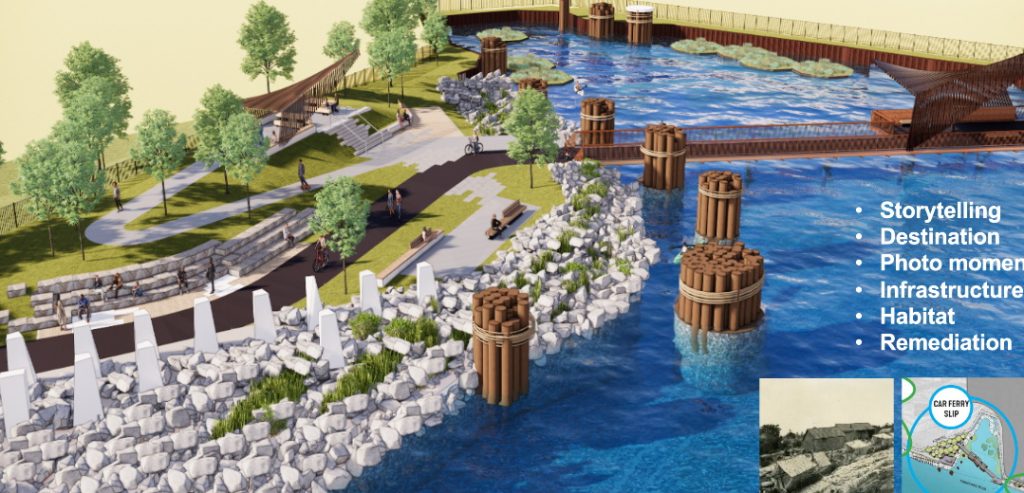Milwaukee Aims High In Bid For Transportation Grants
And it looks like the State of Wisconsin has federal aid to make dreams into reality.
The City of Milwaukee is looking to win big in an arcane federal aid redistribution process.
If it succeeds, residents could see more protected bike lanes constructed, faster upgrades to LED streetlights, less time waiting at stop lights, an expansion of Bublr Bikes and several other projects. The Common Council signed off on the grant requests earlier this month.
“What happens is, the [U.S. Department of Transportation], particularly the [Federal Highway Administration], goes across the country and looks at all the competitive programs, all the states, and figures out who isn’t spending to their allocation. They hoover up all that money and reallocate it to the states that have spent all of the federal aid they were given,” said City Engineer Kevin Muhs in an interview with Urban Milwaukee.
Wisconsin, said Muhs, is expected to receive an “unprecedented” amount due in part to the Bipartisan Infrastructure Law. More than $160 million is expected to come to the state.
As a result, the state is expected to put the money into its federally-defined Transportation Alternatives Program (TAP, $67 million), Congestion Mitigation and Air Quality (CMAQ, $43 million), Carbon Reduction Program ($33 million), PROTECT ($12 million) and Rail Highway Crossing Safety ($7 million). Figures come from a March application solicitation.
To access any of the grant funding, the city needs to provide at least 20% of the total project costs.
The Department of Public Works (DPW) is submitting three grant requests just for street lights through the Carbon Reduction Program. Labeled Area A, B and C and totaling $7.9 million, the requests cover the entire city. DPW has recently shifted to working to replace as many high-pressure sodium light bulbs with LED bulbs as possible to save money on electricity and improve visibility while it works through an electrician shortage to be able to replace failing series circuitry.
DPW is also vying for $3.3 million in funding to expand Bublr Bikes station network and fleet. The nonprofit has relied on other grants and philanthropic support to build its current network, but the size of the latest request grant would substantially expand the system, adding 500 bikes and 800 docks (batched together into stations).
Two DPW applications would accelerate work already funded by grants in future years. That includes a protected bike lane study and plan ($440,000 grant request) and a protected bike lane on 2nd Street from W. Michigan Street south to W. Maple St. ($322,000 request for design work, with a $2.3 million construction cost estimate). “Those are currently scheduled for future years. We are hoping use this money in 2024 to bump those forward,” said Muhs. The 2nd Street lane would connect with one being built to the south.
An additional grant is being sought for the planned 20th Street bike trail, a former interurban corridor that previously received a TAP grant. Costs have increased by $450,000 after the design process was undertaken. A grant to cover 80% of the cost increase is being sought.
The Department of City Development is requesting $14.7 million to build the now long-awaited riverwalk along the inner harbor in the Harbor District. The project, currently to be funded by $14.5 million from a tax incremental financing (TIF) district associated with Komatsu Mining‘s South Harbor Campus, has been redesigned and delayed due to rising costs. Securing a grant would give the city a new primary funding source for the largest one-time riverwalk expansion in its history. It would also allow the city to reprogram the TIF funds.
Award announcements are expected to be made later this summer.
Legislation Link - Urban Milwaukee members see direct links to legislation mentioned in this article. Join today
If you think stories like this are important, become a member of Urban Milwaukee and help support real, independent journalism. Plus you get some cool added benefits.
Transportation
-
Congestion Pricing Cuts Air Pollution in New York City
 Dec 14th, 2025 by Jeff Wood
Dec 14th, 2025 by Jeff Wood
-
FTA Tells Milwaukee to Crack Down on Fare Evasion — Even Where Fares Don’t Exist
 Dec 12th, 2025 by Graham Kilmer
Dec 12th, 2025 by Graham Kilmer
-
Will GOGO’s Bus Service Ever Get Going?
 Dec 9th, 2025 by Jeramey Jannene
Dec 9th, 2025 by Jeramey Jannene






















Well and good as far as it goes. If we really elevated our aim we’d get our rail transit – which is now mired in pavement – elevated physically and bring it up to rapid transit mode.
Jeramey, could you update this article so it includes links to the grant applications. thanks!!
@Wardt01 – I’ve updated the article with links to all of the files.